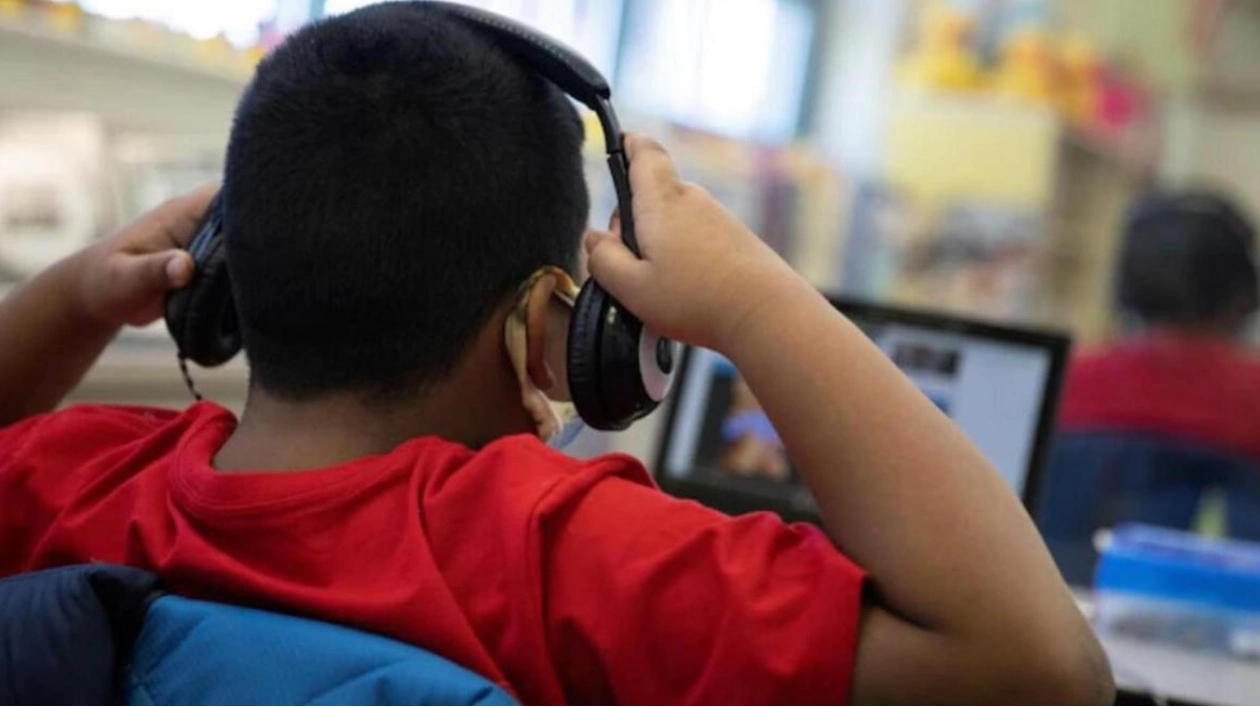Roblox has emerged as one of the most popular gaming platforms among children, teenagers, and even adults. With its vast user base exceeding 45 million daily active users, it offers a diverse virtual universe where players can engage in a multitude of experiences — from role-playing and creating their own games to socialising with friends and strangers. However, beneath the excitement of its virtual adventures, various cybersecurity threats loom. According to experts based in Dubai, these threats are particularly concerning when it comes to children.
Managing Director of the Rayad Group of Companies, Rayad Kamal Ayub, revealed that "About 90% of children playing online games like Roblox have witnessed or experienced some form of bullying. The anonymity provided by these platforms makes it hard to control or even trace back these interactions." This creates an environment where harmful behaviours can thrive undetected. Children on Roblox are also vulnerable to a broader range of cybersecurity risks.
Founding Partner and Board Member of Women in Cybersecurity Middle East, Irene Corpuz, highlighted, "One of the biggest concerns is the prevalence of phishing scams. These scams are often designed to steal children’s personal information or login credentials by tricking them into clicking on deceptive links or downloading fake apps." She also pointed out that "Online harassment through chat or private messaging is another significant risk, with many kids exposed to cyberbullying or even attempts to coax them into dangerous conversations."
Ayub elaborated on this, noting that the rise of sophisticated scams is alarming. "Most of these scams target children on platforms like Roblox. They try to trick them into downloading malware or submitting personal information in exchange for non-existent rewards," Ayub explained. He described how these scams often play out: “You’ll see a link advertising free Robux or in-game items, and it takes you to a website asking for your username and operating system. They tell you to enter the number of coins you want, and suddenly there’s a ‘Last Step’ message. That’s when they lure you into sharing sensitive information.” This is a critical step in their scam strategy, Ayub noted, with attackers using these details to hack accounts or access personal information.
A more troubling concern is the predatory behaviour some users engage in on Roblox. Corpuz emphasised, “Predators often pose as peers, gradually building trust with children. They will use in-game chat, friend requests, or private messaging to isolate and manipulate young players. In extreme cases, this can lead to inappropriate conversations or requests for private images.” Ayub added a disturbing dimension to this, the rise of “Condo Games” on Roblox, where adult content, including explicit language and violent or sexually explicit material, is disguised within games. "These virtual spaces are created by malicious users who lure children into environments designed for predatory behaviour," Ayub said. "It’s alarming how easily children can be exposed to these situations, all under the guise of innocent play."
A significant part of Roblox’s appeal is its in-game currency, Robux, which allows players to buy items, skins, and other upgrades. But this opens another window for scams. Ayub cautioned parents, "Scammers prey on children’s desire for Robux by creating fake offers that trick them into sharing passwords or credit card information. Once they have access to their accounts, scammers can steal Robux or even make unauthorised charges using connected payment methods." Another risk, according to Corpuz, involves malware and viruses disguised as in-game mods. “Children may download what they believe to be a legitimate game mod, only to infect their devices with malware designed to steal sensitive data or spy on their activities,” she said. A 2023 cybersecurity report revealed that Roblox ranks as one of the top three gaming platforms most frequently targeted by malware.
Roblox has implemented several safety measures, including parental controls, human moderators, and AI content filtering systems to combat these threats. However, Corpuz warned that these are not always foolproof. “While Roblox’s content filters do block a large amount of inappropriate content, they can’t catch everything,” she said. Ayub emphasised the need for more robust security, particularly with features like multi-factor authentication (MFA). "But Roblox needs to improve how its security systems function, particularly for the Windows version, where the 'Trust This Device' feature can be inconsistent. This discourages users from enabling necessary security features."
Corpuz said that the best protection is parental involvement. “Parents need to familiarise themselves with Roblox's parental control options. It’s crucial to know who their children are interacting with online, review their chat histories, and discuss any unfamiliar games or interactions,” she said. Ayub also stresses the importance of educating children about online safety. “Teach them not to trust strangers online, not to click on suspicious links, and to be cautious when giving away personal information — even to their ‘friends’ on Roblox,” he advised. If a child has encountered inappropriate content or behaviour on Roblox, Corpuz suggested using Roblox's reporting tools immediately.
While Roblox can be an entertaining and educational space for children, it’s crucial to understand the associated risks. Corpuz concluded, "The key is striking a balance — allow your child to enjoy their gaming experience while actively taking steps to protect them."






